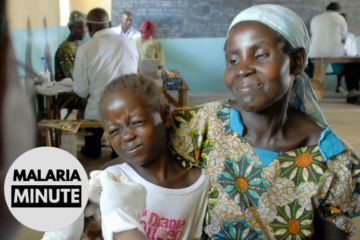The Latest Malaria News, in 60 Seconds.
A peptide derived from Bacillus bacteria stimulates the production of T cells prophylactically and therapeutically, and researchers explore the use of satellite imagery to assess the suitability of malaria vectors in different geographies.
Malaria Minute on iTunes and Spotify
Transcript:
The malaria parasite utilises PD1, a protein that suppresses immune responses, to ensure its survival; blocking PD1 induction is, therefore, critical to stop escalation of infection. Researchers have investigated whether LD01, a peptide derived from Bacillus bacteria, can prevent such escalation. When combined with a preventative malaria vaccine, LD01 stimulates the production of antigen-specific CD8 T cells. When used therapeutically, the use of the peptide resulted in mouse survival that was associated with fewer suppressive T cells.
Researchers have explored the use of satellite imagery and big data to assess the suitability of malaria vectors in different geographies. Built on the Google Earth Engine, the tool considers a range of environmental factors that drive vector prevalence. The researchers found that nearly 21% of Malawi is suitable for breeding based on land characteristics alone.
Sources:
Image Credits: CDC/ Dr. Mae Melvin [20373]


